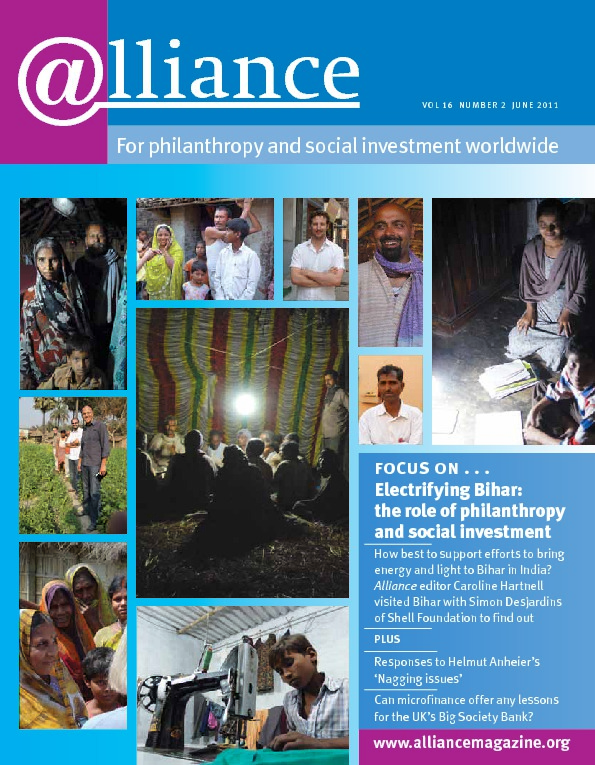European foundations don’t score well in Helmut Anheier’s deficit analysis, yet the points of criticism are not new nor should they come as much of a surprise. Overall, however, they are certainly sobering and can’t be entirely dismissed. Let’s be honest: European foundations, especially when compared to their American counterparts, are not exactly famous for their ability to take criticism, their willingness to cooperate, their advocacy of their own interests, their willingness to invest in philanthropic and third sector research, or their transparency and accountability.
However, Anheier’s criticism has its constructive side. He is calling on European foundations to reflect on their strengths and uniqueness, and to remember their long-standing tradition and culture. He urges us to recognize and better exploit our potential, and to utilize it to achieve long-term objectives.
We could respond by defending our traditional strategies – or we could be brave enough to embark on a new course. After all, it’s true, isn’t it, that we will make progress in terms of legitimacy only if we identify foundations’ potential to offer solutions to the problems of our rapidly changing society? Don’t we need a new and clear ‘master narrative’ for European foundations as proactive stakeholders in helping to shape social policy? Thinking about foundation activities in this way might reveal to us ‘intelligent’ – that is to say effective – approaches to ‘thoughtful leadership’.
We should see Anheier’s critique as an opportunity. It should motivate us to be more courageous when it comes to implementing innovative ideas and projects, and to act flexibly and quickly. If we have a clear vision of our own role and of ourselves, we can accept our social responsibilities, highlight problems in society, develop models for reform, and pursue advocacy, effectively exerting pressure on politicians.
To do so, however, we must be more transparent, make sure our work is scientifically founded and our actions evidence-based, take suggested improvements seriously and make the most of existing synergies. This is where we have ground to make up if we want to turn Europe into ‘the 21st-century heaven of philanthropy’.
Bernhard Lorentz
President, Stiftung Mercator
Anne Rolvering
Deputy director, Centre for International Affairs, Stiftung Mercator





Comments (0)